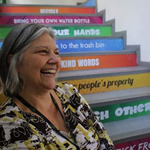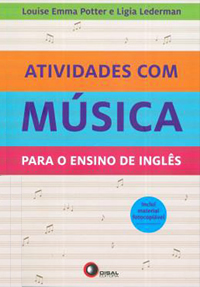By - Mônica Camargo

I have been an English teacher, program coordinator and teacher trainer for 35 years and have never seen such a revolution! Cheers! A great revolution indeed. It has taken us forever – and a virus crisis – to realize that all we discuss in meetings, workshops and training programs is not only possible but necessary. So is the real appropriation of technology by everybody!
This chaotic isolation movement has unveiled the reality for most technology users: except for social media, most people, including our kids and teenagers, do not know how to deal with virtual tools at all – from simple Word docs to video-making. Consequently, part 1 of entering the 21st century is learning how to use technology for real and for good academic and professional goals as well as for fun; part 2, learning various contents through technology applied to the process of discovering, applying the rule, experimenting, correcting the route, revising, rediscovering, making conclusions, documenting results, presenting solutions.
Once the frightening possibility of going totally online became true, teachers and school management are facing their reinvention and finally reaching the so-called 21st Century Skills. There is so much to be explored out there in the cloud: so many people sharing great work online, tools and more tools – Zoom, Loom, Skype, Khan, BookWidgets, Google Classrooms, Meets, Docs, you name it!
I remember telling groups of teachers in training that we did need something big to happen in order to wake the educational giant – voilá, let there be light! Not only English language teachers are working online, STEAMing and CLILing but also Science, Math, Human Studies, Portuguese, Physical Education, Technology teachers are taking over the virtual stage and finally discovering the great help they can be to each other and eventually to their students.
There is no return to old ways. We are starting a new chapter in education and, hopefully, in the way people live their lives and relationships. The school is listening more to teachers; we teachers are listening more to parents, who are taking more closely their essential part in their children’s education; we teachers are thinking over online activities – it is not only a transfer from a printed activity: directions need new vocabulary – for example, draw and paint a house has to become go to paintbrush app, draw and paint a house, cut and paste it to this document. Then, instead of put the activity in your folders and hand them in, we are saying save your work and keep it in your English file or name your work (your name and class) and save it in our Google drive.
Those old, usually underused correction symbols for assessing writings are proving useful and the process of multiple drafts to achieve good texts has never been so important and easy – if we use Google Word docs for interactive work or the comment tool in it.
Teachers are also finding numerous tools to make the layout of their activities more user friendly – the saying do to others what you would like others to do to you has never been so true in that sense. Paying attention to spacing, type of letter, colors, possibility of interacting or not with the document, simple access to links – self-explanatory or followed by clear directions, and it goes on and on. Caring and sharing (brought back from the title of a great book by Gertrude Moscowitz) has never been so essential to redefine priorities.
Who hasn’t thought about how good it feels to make an introductory video or live without telling anyone to sit properly or listen to you or not to disturb their classmate or even hold a second before I let you out to go to the toilet? Which quiet student isn’t thanking the fact that they can finally listen to the teacher’s complete idea or direction before someone interrupts? Students and teachers will certainly realize they miss each other’s physical presence a lot; however, they will also learn that both have essential parts to be delivered in the learning process: listening, participating, respecting, sharing, learning and teaching are lanes on the same road for both.
The planet is giving education the chance to show society that we know better about ourselves and our learners: let education do its job and everyone will win.
Monica holds a PhD in English Literature from Faculdade de Letras e Ciências Humanas at USP; Certifications in Teaching from SIT, School of International Training, and in Translation from Associação Alumni; graduate courses in School Management, Pedagogical Coordination and Psychopedagogy. She is co-author in three series of schoolbooks by Richmond. She has more than 30 years of experience in teaching language, teacher training. In the last ten year she has specialized in CLIL and STEAM education. She has been a Cambridge speaking examiner since 2013 and presently coordinates the Bilingual Program at COC Vila Yara.
LIVRO RECOMENDADO
